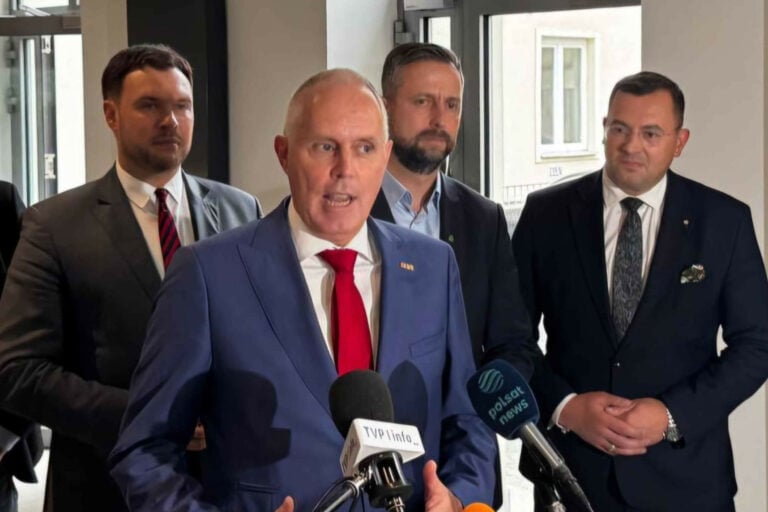December 9, 2025 | 07:13 GMT +7
December 9, 2025 | 07:13 GMT +7
Hotline: 0913.378.918
December 9, 2025 | 07:13 GMT +7
Hotline: 0913.378.918
Together, they signed the Warsaw Declaration in the presence of the Polish vice premier and minister of Defence. “Food security and agricultural strategic autonomy are not negotiable,” states Gert Jan Oplaat, signee representing the European poultry processors combined in AVEC.

Avec chair Gert Jan Oplaat calls for concrete coherent measures to protect European farmers and expect fair rules in international trade. Photo: Avec.
The farmers’ organisations plead for a better agricultural policy whilst simultaneously opposing the EU-Mercosur trade deal. The undersigned organisations demand the preservation of the Common Agricultural Policy as a fully autonomous cornerstone of the European Union, with a separate, dedicated two-pillar budget adequate to the challenges faced.
They call on EU institutions to reinforce market management with properly functioning and adequately financed risk management tools and safety nets. Furthermore, they demand the immediate suspension of the ratification process of the EU-Mercosur agreement in its current form, along with concrete, coherent measures to protect European farmers. They expect fair rules of international trade based on full reciprocity, equal production standards, and environmental protection, supported by credible control measures.
The organisations gathered in Warsaw express their deepest concern and firm opposition to policy initiatives that threaten the foundations of European agriculture: agricultural strategic autonomy for food and non-food needs, consumer safety, fair competition, and the protection of the environment and climate. They oppose the dismantling of the Common Agricultural Policy (CAP) as a strong, ambitious policy with a dedicated budget adequate to the challenges, and thereby oppose any actions that endanger the future of European agriculture and, consequently, Europe’s security.
The increasing reliance on agricultural imports, at the expense of domestic production, poses significant risks, particularly in the context of an uncertain geopolitical environment and ongoing global military conflicts, such as the war in Ukraine. This shift could weaken European agriculture and disrupt established supply chains, leading to greater global instability. This contrasts sharply with the strategies adopted by other global players, who are prioritising the strengthening of their own domestic agricultural sectors.
Furthermore, the farmers’ organisations state that the European Commission cannot demand increasingly strict environmental standards from its own farmers while accepting food imports that do not adhere to the same rigorous standards. It is crucial to review and redefine a coherent European trade policy and recognise the strategic dimension of food production, within a trade order that has drastically changed and moved away from being rules-based. This is necessary to safeguard a sound and future-proof European agricultural sector.
(Poultryworld)

(VAN) Newly designated initiatives in Australia, Canada and South Africa represent science-based and inclusive examples of ecosystem restoration.

(VAN) Rice-based food has been selected as Japan's 'Dish of the Year' for 2025, reflecting public interest in the stable supply of the country's staple food amid a recent rice shortage.

(VAN) A research project in Sweden explored how valuable substances can be extracted from organic waste, such as food waste and animal manure, and how this loop can be closed by producing animal feed.

(VAN) Average retail fertilizer prices continued to be mostly higher during the fourth week of November 2025, according to sellers surveyed by DTN.

(VAN) Inaugural Appeal focuses on cost-effective agricultural solutions that link urgent needs with long-term resilience.

(VAN) Landmark SOLAW 2025 report reminds us that resources for food are not infinite.

(VAN) Climate change is a growing concern for agricultural productivity and several studies have focused on how climate variations can impact crop yields.